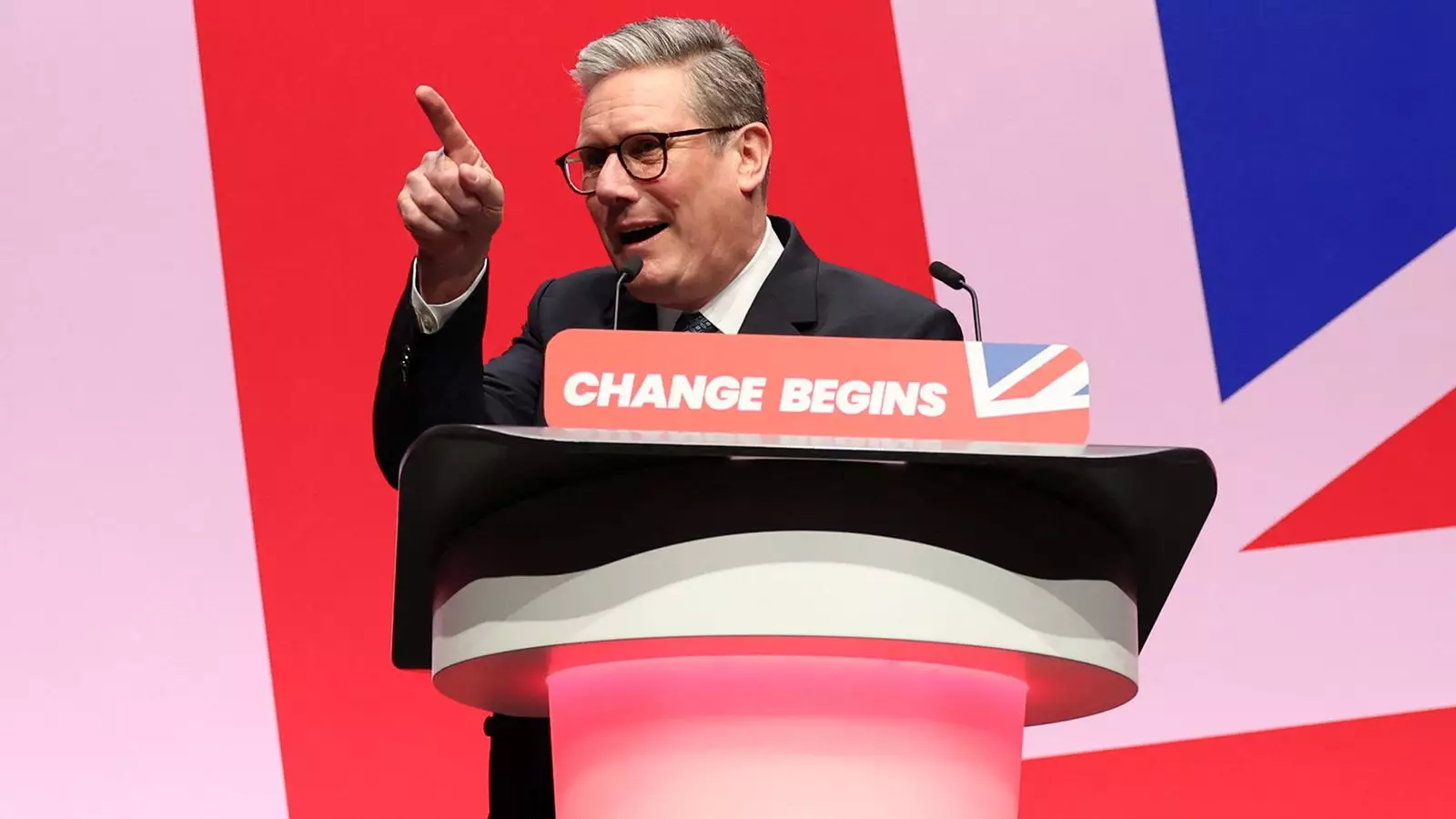The British political landscape is witnessing a troubling paradox; the Labour Party, long hailed as the bastion for the underprivileged, now risks marking its tenure as the first in history under which child poverty is set to rise. This unsettling outlook is not merely a statistic; it symbolizes a systemic failure that demands urgent attention. The evidence presents an alarming reality—government policies under the current leadership appear to disproportionately disadvantage the most vulnerable, particularly disabled individuals and children. It challenges the very essence of Labour’s foundational ethos, compelling one to question the party’s commitment to social justice.
This trajectory is not an occurrence that should be brushed aside; it is a clarion call for an alternative path. The joint statement by various parliamentary members, including former Labour leader Jeremy Corbyn, highlights a disconcerting trend of prioritizing defense spending over welfare—an irony perhaps, when one considers that a truly secure society is measured by the well-being of its children and marginalized communities. The current Labour leadership’s approach starkly contrasts with the calls for a wealth tax targeting those with over £10 million in assets—an initiative that seeks to funnel resources back into critical public services like education and healthcare.
Whose Interests Are Being Served?
As the chancellor, Rachel Reeves, faces mounting criticism for a budget that enacts welfare cuts while ramping up military expenditure, one can’t help but reflect: whose interests are truly being served? The assertion that tackling issues of poverty is merely about financial constraints misses the broader context of moral prioritization. The choice to allocate £2.2 billion towards defense instead of social support depicts a political landscape that is dangerously skewed.
The measures projected for the next few years suggest that approximately 250,000 additional individuals, including 50,000 children, could be cast into relative poverty by the turn of the decade due to these fiscal strategies. In such a climate, it is utterly irresponsible for political leaders to dismiss the gravity of these statistics, digging deeper into the trenches of denial rather than addressing the urgent need for systematic change.
Certainly, this radical departure from the party’s historically progressive rhetoric raises the fundamental issue of leadership accountability. How can a government pivot towards a defense-centric philosophy when society expands into an era of increasing inequity? These decisions are not just numbers on a spreadsheet; they reflect real lives impacted adversely from decisions made in secluded chambers far removed from the realities of day-to-day existence for ordinary citizens.
The Rise of Alternative Voices: A Call for Progressive Politics
As fears mount that the rise of Reform UK can be directly tied to Labour’s faltering, it compels us to reflect on broader ideological implications. Engaging in populist rhetoric that scapegoats vulnerable communities—whether migrants, minorities, or others—is not only morally indefensible but also counterproductive. Such diversions dilute the core message of progressive politics, which should advocate for inclusive growth rather than gatekeeping through fear-mongering and division.
Amidst these tensions, the demand articulated by Corbyn and others for a more progressive agenda rings increasingly true. Advocating for an economic framework where the wealthiest bear a heavier tax burden, alongside implementing rent controls and nationalizing essential services, reflects an urgent need for a political renaissance. This is not merely a matter of what is fiscally feasible but one of moral imperative, recognizing that inclusivity and equity ought to undercut all political decision-making.
Yet, the question remains: will Labour heed this call or succumb to inaction, further disillusioning a base that historically yearned for change? The apparent favoritism towards established financial sectors and corporate interests stifles the very constituency that the party professes to champion.
Public Sentiment: A Tune Echoed by the Electorate
Recent polling data demonstrates that public sentiment is decidedly against the government’s current fiscal strategies. A staggering three-quarters of the British public would favor tax increases on the wealthiest rather than enduring further cuts to essential services. A reality check reveals that support for such measures could be imperative—not merely as a reaction to poverty but as a holistic strategy aimed at rebuilding community prosperity.
Yet this heightened awareness of socio-economic injustice begs the ultimate question: will the current leadership adapt, or is Reform UK’s rise an indictment of Labour’s failure to engage deeply with the plight of ordinary citizens? We find ourselves at a critical juncture—one that requires dynamic leadership capable of steering away from fear and towards a collective vision of empowerment. The time to act is now, lest we see history repeat itself with increasingly widening gaps between the privileged and the dispossessed.

